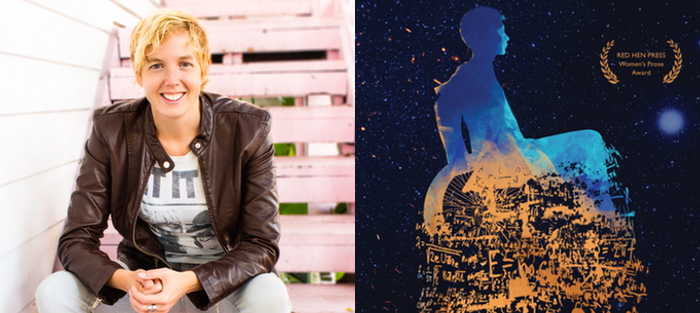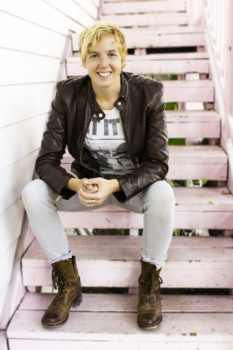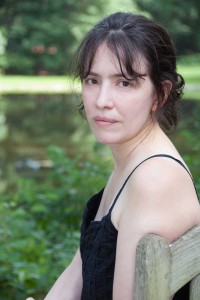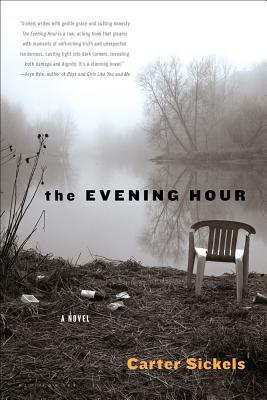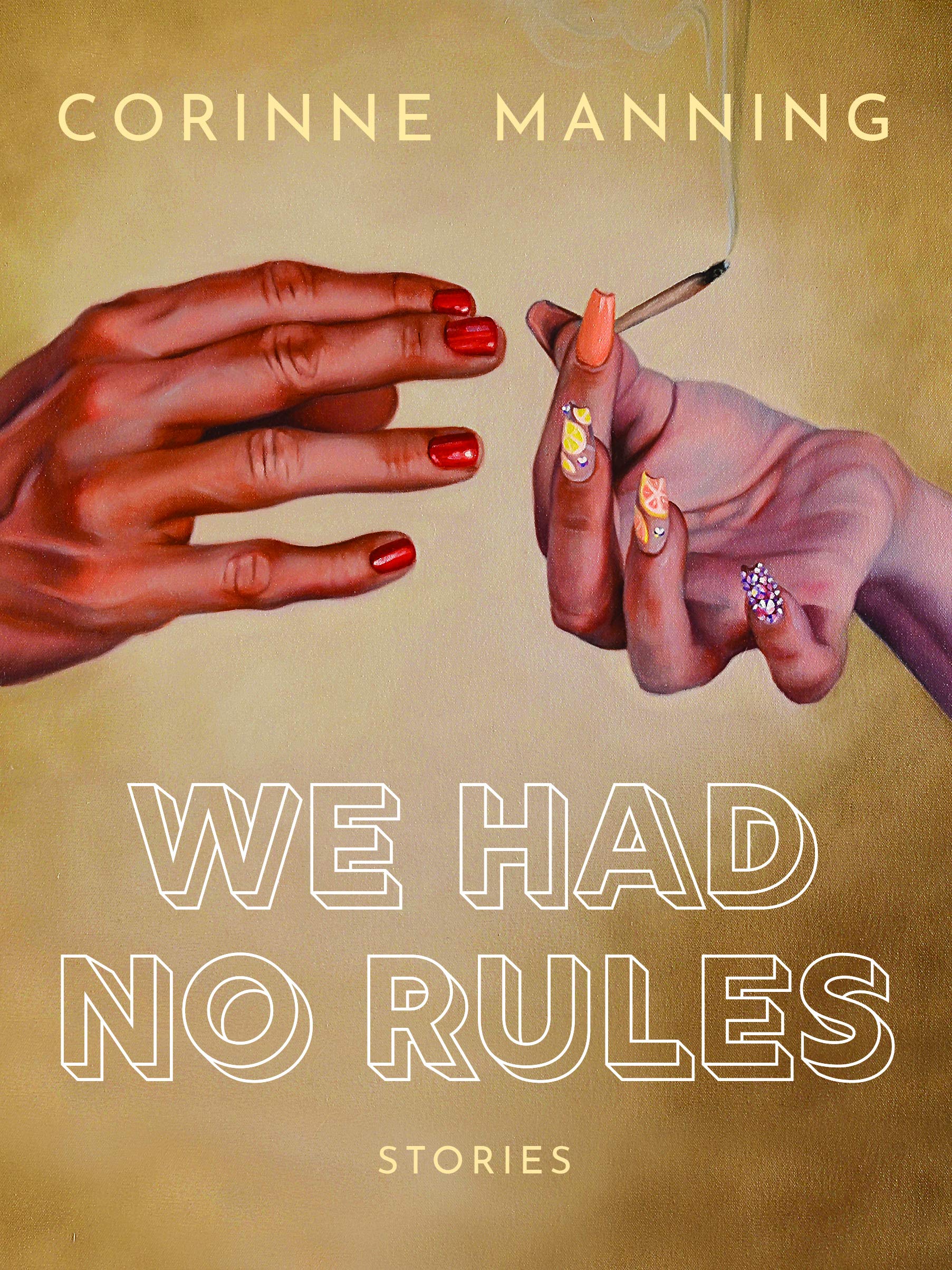Three years ago, I received the good news that my first novel was being accepted for publication by Jaded Ibis Press. This was in 2016, and the press had just embarked on a new direction. Specifically, as “a feminist press committed to publishing socially engaged literature with an emphasis on the voices of people of color, people with disabilities, and other historically silenced and culturally marginalized voices.” One of the individuals helping reshape the press was Elizabeth Earley, who serves as publisher and one of the acquisitions editor. A Jaded Ibis author herself prior to joining the staff, Earley’s first novel, A Map of Everything (2013), is based on her own family’s experiences when her older sister suffered a traumatic brain injury.
Reading the book, I was stunned by the novel’s beauty and power. The narrative moves back and forth in time, exploring the intricate, unpredictable changes in the family’s dynamics, the long-term ramifications for a person with such an injury and for her loved ones, who are also traumatized but in less measurable ways. The novel also touches upon visionary experiences of two of the characters: June, the injured teenager, and her younger sister, Anne. I appreciated Elizabeth’s light touch with these experiences; there’s no attempt to explain them—or explain them away.
Now comes Elizabeth’s second novel, Like Wings, Your Hands, published by Red Hen Press and chosen by judge Aimee Bender for the press’s Women’s Prose Prize. The novel focuses on Kalina, a longtime practitioner of yoga, and her son, Marko, a teenager who has spina bifida and uses a wheelchair. Though the subject matter and structure are completely different from her first novel, Like Wings once again touches on the compelling themes of spirituality, altered states of consciousness, enduring familial ties, queer desires, and unapologetic attention to the body and its needs.
Interview:
Rosalie Morales Kearns: One of the things I really appreciated when we began working together editorially was your open-hearted enthusiasm for my novel manuscript. Besides being an advocate for writers, you’re a passionate reader. Were there particular books that you feel were important to your formation as a writer?
Elizabeth Earley: What a compliment! Thank you. There were so many important books that helped form my worldview as well as my voice as a writer. To narrow it to five, I’ll say: Orlando, by Virginia Woolf; Tar Baby, by Toni Morrison; Middlesex, by Jeffrey Eugenides; Native Son, by Richard Wright; and Gut Symmetries, by Jeannette Winterson. Each of these books inspired me in specific ways, but what they have in common is that they push the boundaries of the form of the novel. This is something I aspire to when I write.
In addition to books, what else has influenced your creative formation?
The act of living. One of my best friends once told me that my life seems scripted to be fodder for my writing, and I see his point. It’s been a dramatic series of events pretty much since the original trauma of birth. And, my ancestors also have cinematic stories. Perhaps it’s in my DNA.
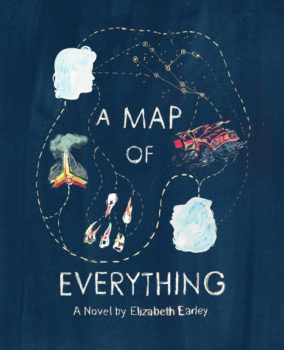 My maternal grandfather, Charles, was profoundly deaf from a long line of deaf people. He married my grandmother, also deaf, but she became deaf in an early childhood illness, so her first language was English. When they first met, my grandmother, Elouise, only knew how to communicate in English and by reading lips. Charles had never known verbal English and his native language was American Sign Language. They got to know each other and fell in love over hand-written notes back and forth—penned conversations over a coffee shop table. Then Charles taught Elouise sign language, but it wasn’t ASL. It was an invented language he made up spontaneously. He later taught her ASL, too, but their secret invented language was something they never abandoned. The level of creativity and genius it would take to make up an entire language on the spot is something I’ve always marveled at and felt proud to have descended from. There are several other aspects of his life that are cinematic, including how he was hospitalized in a tuberculosis sanatorium for years where they used deaf patients as subjects for experimental surgeries and risky treatments. Many of my grandfather’s peers there, including his older brother, died.
My maternal grandfather, Charles, was profoundly deaf from a long line of deaf people. He married my grandmother, also deaf, but she became deaf in an early childhood illness, so her first language was English. When they first met, my grandmother, Elouise, only knew how to communicate in English and by reading lips. Charles had never known verbal English and his native language was American Sign Language. They got to know each other and fell in love over hand-written notes back and forth—penned conversations over a coffee shop table. Then Charles taught Elouise sign language, but it wasn’t ASL. It was an invented language he made up spontaneously. He later taught her ASL, too, but their secret invented language was something they never abandoned. The level of creativity and genius it would take to make up an entire language on the spot is something I’ve always marveled at and felt proud to have descended from. There are several other aspects of his life that are cinematic, including how he was hospitalized in a tuberculosis sanatorium for years where they used deaf patients as subjects for experimental surgeries and risky treatments. Many of my grandfather’s peers there, including his older brother, died.
That’s an amazing life—and again containing themes of love and connection and trauma (only in this case, the trauma is caused by the medical profession rather than healed by it). To move from your formative influences to your own writing process and the craft of writing, what have you learned that you wished you had known earlier?
That rules are important to know, but also important to break. I used to think I could just dive into being unconventional and get away with it. The formula of the Hero’s Journey irritated me and I rebelled against it. But then I read a lot of Joseph Campbell and I understood: the convention wasn’t given by any human. This is the formula of story we come into the world with. The most primitive, ancient societies we know about told stories this way. The archetypal figures are ones understood by even very small children newly acquiring language; they might play with sticks and intuitively make one a witch and one a brave hero. And so I embraced the formula of the Hero’s Journey. I studied it, then used it, then made it my own.
A Map of Everything was based on your family’s experience after your sister’s traumatic brain injury. I’m particularly interested in this, because my own work is about as non-autobiographical as it gets. What made you decide to tell that story in fiction rather than as a memoir? Could you talk about the process of writing fiction based on your own lived experience?
My favorite topic: fiction versus nonfiction. I may have a controversial opinion, which is that it’s all fiction. First, we are biological systems. Physiologically, we are filters. We never experience anything directly (cue Plato’s Cave). Compound the effect of these sensorial filters with the phenomenon of memory—there have been many scientific studies on memory that have proved its unreliability in terms of relating the truth—and this brings us to the philosophical question of whether there is any such thing as objective truth, which I’ll avoid just now.
I don’t have your imagination, or that of Stephen King, or John Steinbeck. I draw from my own lived experiences and/or my inner thought life to create stories. I sometimes experience magic in my subjective reality. And if I include those phenomena in a story I tell, it’s called magical realism.
So the short answer is, it’s fiction because everything is fiction. Because visible little girls don’t make friends with invisible little boys in objective reality. Because memory is unreliable. Because, if you ask each person involved in that true story their accounting of it, you would get as many entirely different stories. And, because I made some stuff up. I do have some imagination, just not an enormous one.
I love the point you raise about magical realism. It’s something Toni Morrison also discussed. For some of us, visions and ghosts and so forth are part of ordinary reality. Who gets to define what’s included in realism and what’s excluded?
I’d like to move from content to form now, if I may. I’m always interested in narrative design and plot structure. In both of your novels, the narrative moves back and forth in time and shifts between point-of-view characters. Could you talk about your process with that? Did you envision it that way right from the start? How did you decide what to place where?
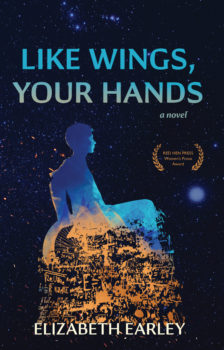 I was in a class in my first MFA program and the name of the class was Prose Forms. The teacher challenged us to think about the one thing we would never write about and write about that. I’d been trying to write a different book at the time, but this forbidden material from my own personal wounds kept intruding. So I cast aside what I was working on and met her challenge. The idea of the different prose forms is that they can help access otherwise impenetrable truths in certain stories. Second person can offer just enough distance, for example, to write graphically about an experience of being raped. The form of writing a letter to someone can open new vistas of meaning within the telling. The form of extended metaphor or prose poem is also used, which gives an experience a new interpretation.
I was in a class in my first MFA program and the name of the class was Prose Forms. The teacher challenged us to think about the one thing we would never write about and write about that. I’d been trying to write a different book at the time, but this forbidden material from my own personal wounds kept intruding. So I cast aside what I was working on and met her challenge. The idea of the different prose forms is that they can help access otherwise impenetrable truths in certain stories. Second person can offer just enough distance, for example, to write graphically about an experience of being raped. The form of writing a letter to someone can open new vistas of meaning within the telling. The form of extended metaphor or prose poem is also used, which gives an experience a new interpretation.
As far as point-of-view characters, my first novel has only one. Even the third-person sections are told in the first person by the narrator, imagining the situations of her family members, similar to how it’s done in Middlesex. The nonlinear time structure just came out that way and felt natural to the story.
In Like Wings, Your Hands, I knew right away there would be two perspectives. My original idea was to have the two protagonists, mother and son, tell about their shared experiences to see how that changed from one point of view to another (and thus to shed light on how all story is fiction, or at least a very subjective truth). And I did keep some scenes in the book like that. But as I went along, and as the characters took on a life of their own in my mind, they did different things and told about separate experiences. And that seemed more authentic. You have to follow the life of the story.
Like Wings, Your Hands is your second novel. Was the writing process different this time around?
Very different. It took me about seven years from start to the time I got to a completed draft that I felt good about submitting. (My first came out in roughly a year.) And the second one was more of an exploration than the first. There was so much research involved with the second one, too. I read as much fiction and even memoir as I could find with main characters who lived with disabilities. There wasn’t much to be found. I researched spina bifida quite a bit, too, and the other medical conditions Marko has. The book took on many forms over its process of becoming. The dream bed/time travel part of the plot didn’t arrive until the last six months of my journey. And it felt so essential, I wasn’t sure how I ever thought I had anything close to a draft without it.
When you started submitting the second novel, was that process different? In what way?
Somewhat, yes. My agent started shopping an early draft that I didn’t feel great about. But she felt great about it, so she sent it out places and as it got rejected, I felt more and more sure that it needed to change more. A few months into that process of her sending it out and it getting rejected by editors, I travelled to Sedona, Arizona, and visited a psychic. I asked the psychic what to do about my book and he said, “It’s not finished. You have to finish it.” And I said, “How?” And he said, “Read Bid Time Return. Read that and you’ll know.”
Even though I suspected I was crazy to do it, I followed his advice and read that novel. And he was exactly right. I knew what to do, and it was to add the dream bed and layer in that additional and transcendent link across the generations between grandson and grandfather.
What made you and your fellow editors decide to take on the management of Jaded Ibis
Debra, the founder of the press, was actively trying to sell it. That prospect scared me, since she was the publisher of my first novel. I didn’t want it to fall into the hands of just anybody. I also had strong opinions on how the press should change and how its mission should change. She called it a feminist press, for example, but most of her authors were men, and almost all were white. When I asked her about that, she told me women and people of color didn’t submit. So when she decided to move abroad and retire from the publishing industry and offload the press she’d built, I made her an offer and promised to care for her legacy and make it great. And I think the books on our new list since we’ve taken over are wonderful and essential. In fact, they’re some of the most important books I’ve read. They have important things to say, things the world desperately needs to hear. I’m so proud and excited to be a part of that.
How did your prior experience as a published author help you in your work as a publisher? And how has your experience as a publisher affected the way you write and/or market your work?
Although I’d gotten involved with Jaded Ibis after Debra published my first novel, and although I learned a lot from her, I didn’t really know enough about the publishing industry to become a publisher. I learned as I went and I made a lot of mistakes and I asked for a lot of help. But the first couple titles didn’t get enough attention because I didn’t know enough. It was you, actually, who taught me a lot about publicity. You got quite a buzz going around your book. And yes, I’ve used that knowledge about marketing to help market and publicize Like Wings. I’m learning even more from Red Hen Press. Tobi Harper at Red Hen really knows her stuff, and she’s generous about sharing information with me.
What writing projects are you working on right now?
I just finished a manuscript that’s a hybrid memoir. Hybrid because it’s part conjecture, and memoir because it’s largely a chronicle of my recently lived, super-harrowing experiences. I’m almost ready to send it out to a new agent I have a crush on, who I met at AWP. She’s queer and progressive and I got very excited hearing what she had to say about her philosophies around literature and publishing. But I’ve never written anything that’s made me feel more vulnerable, so I’m scared and I’m giving it a little time, which I hope will help me to form the right words to pitch it. With a little help from an early reader, I have this description so far:
In 2018, El crashes her motorcycle. In 1934, Charles undergoes experimental surgery at a tuberculosis sanatorium. In 2018, El undergoes treatment for her injuries, physically recovers, and forfeits seventeen years of sobriety. In 1934, Charles watches deaf patients die at the hospital and struggles to survive only to later end his own life in an unusually violent way. In The Eternal Round, Earley reveals the links in these stories, these personal and family histories, and spirals through time to expose how present trauma is connected to past trauma, and past trauma can be healed by present reconciliation. Through its telling, both Charles and El travel the eternal round to arrive, finally and again, at the place where generational healing is the by-product of self-love. It’s a coiled journey that involves bodily fluids, ocean souls, forest hearts, a boomerang vagina, deaf and queer love stories, and ultimate reckoning with personal and universal truths. With unflinching honesty, Earley probes the depths of her psyche and sets forth questions as well as some answers about our existence on this planet.
It’s so interesting to me how this new work, once again, ties in to your other books thematically. One of the things you focus on is that trauma isn’t just experienced by one individual. It reverberates through the lives of others—who bear witness, who share in the healing process. People live in a web of connections, and you don’t shy away from the visionary or mystical aspects of those connections. You embrace the strangeness.
The mystical holds the most energy for me because it’s ubiquitous yet impossible to understand. The body is just as mysterious as outer space, in terms of what the best human minds have been able to figure out with any certainty. All the myriad individual systems of the body working in concert, all of it autonomous—the underlying intelligence is staggering. Nothing that any human has ever created comes anywhere close to this level of brilliance. Take, for example and merely, the phenomenon of healing: how cells and bones and skin actually regenerate and grow back together. It’s a self-correcting organism, the body. It contains programming that can anticipate and respond to so many of the threats this world presents that challenge its survival. The body alone is mysterious enough for me to write stories about for the rest of my life and never exhaust the range of inquiry. But the question that fascinates me the most is the one I have tattooed on the underside of my forearm along the prominent scar from wrist to elbow (from an orthopedic surgery wherein my right hand was re-attached following a motorcycle accident) where the skin grew back together: who, then, made all this? It’s a daily reminder to never stray too far from this place of awe and wonder. And to remember that I am, somehow simultaneously, far less and far more powerful than I know.

